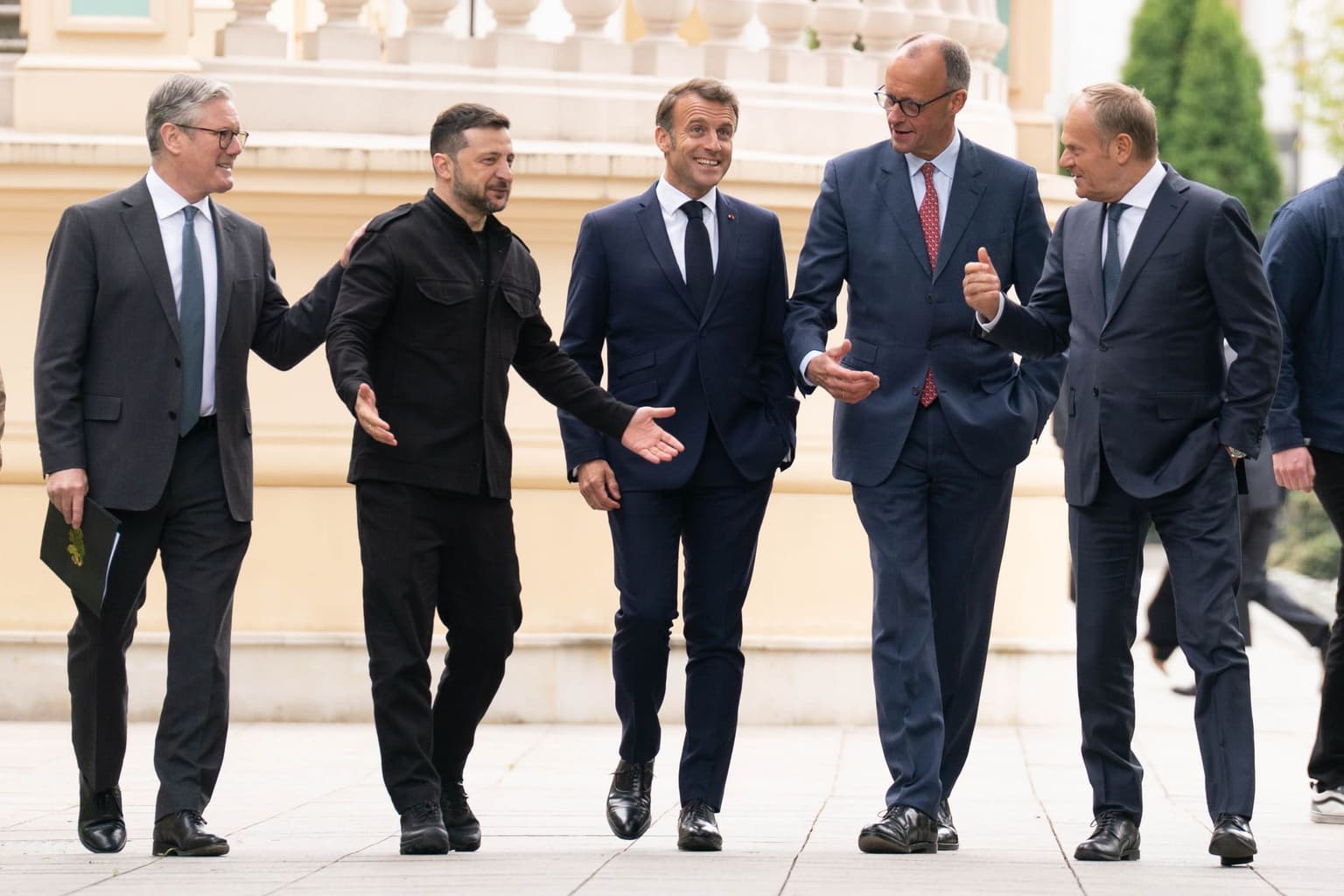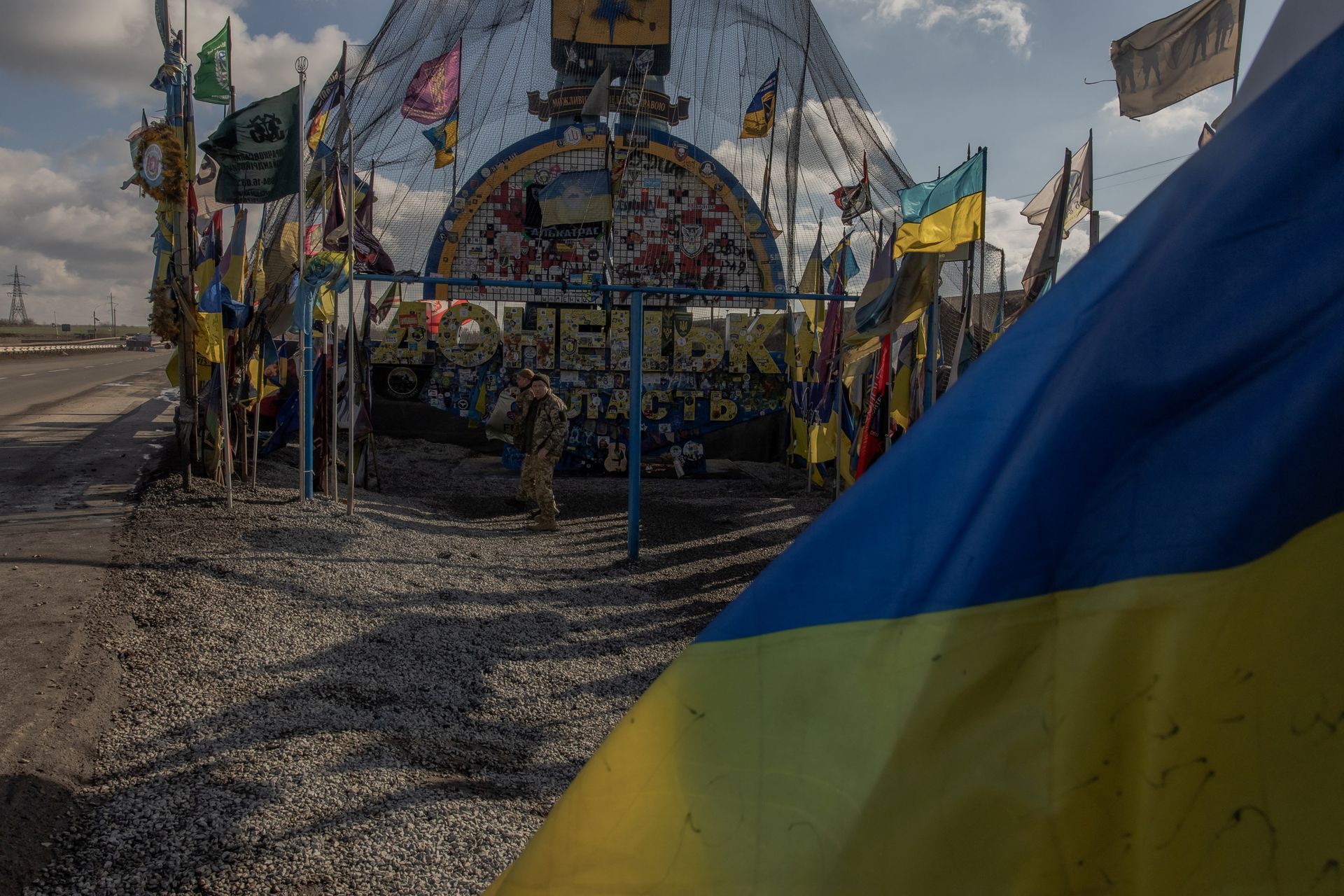Ukraine, Europe back Trump's call to cease hostilities along current front line

Kyiv and its European partners on Oct. 21 supported Washington's proposal for ending hostilities along the current front lines in Ukraine, a plan opposed by Russia.
"We strongly support President Trump's position that the fighting should stop immediately, and that the current line of contact should be the starting point of negotiations," read a joint statement by President Volodymyr Zelensky and the leaders of the U.K., Germany, France, Italy, Poland, the EU, Norway, Finland, Denmark, Spain, and Sweden.
Following what was reportedly a tense visit by Zelensky to Washington, U.S. President Donald Trump suggested Russian and Ukrainian forces should halt hostilities based on their current positions.
Trump referred to Ukrainian territory as "property" Moscow has "won" in the war, but denied earlier reporting that he pressed Zelensky to cede all of Ukraine's Donetsk Oblast — including Ukrainian-held areas — to Russia.
Zelensky confirmed on Oct. 19 that Trump's Russia envoy, Steve Witkoff, "conveyed" Moscow's demands for a full Ukrainian withdrawal from the Donetsk and Luhansk oblasts.
Kyiv has repeatedly ruled out ceding any unoccupied territories, calling instead for a full ceasefire as the first condition for any further peace talks.
Moscow, in turn, has repeatedly rejected halting hostilities along the current front line, with Kremlin spokesperson Dmitry Peskov saying on Oct. 20 that this position has not changed.
"Russia's stalling tactics have shown time and time again that Ukraine is the only party serious about peace," the Oct. 21 statement by European leaders read.
"We can all see that (Russian President Vladimir) Putin continues to choose violence and destruction."
The European leaders also called for increased pressure against Moscow, even as the Trump administration remains reluctant to arm Ukraine with long-range Tomahawk missiles or to back European plans to expand the use of Russian assets to fund Kyiv.
While Trump's stance appeared to have shifted in Ukraine's favor in recent months, Putin's phone call with the U.S. president on Oct. 16 led to another unexpected turnaround.
The two leaders announced that they would meet in Budapest in the coming weeks to discuss peace efforts in Ukraine, although no specific date has been set. Trump also walked back his statements from September that Ukraine is capable of reclaiming all of its occupied territories.
It remains unclear whether Ukraine or European partners will be invited to Budapest, though Zelensky voiced readiness to do so if offered. French President Emmanuel Macron warned that any discussions about Ukrainian and European security cannot take place without all relevant parties present.
Europe has rushed to publicly back Ukraine ahead of the summit, with Zelensky scheduled to meet the leaders of the "Coalition of the Willing" in London on Oct. 24.












